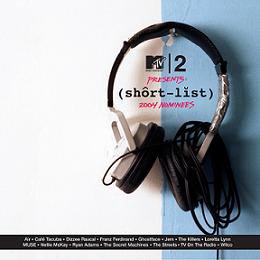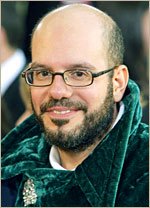
By NEKESA MUMBI MOODY, AP Music Writer
NEW YORK - In its four-year history, the Shortlist Music Prize has
become a coveted industry honor, shining a spotlight on artists who
have made exceptional albums that have fallen under the mainstream
radar.
But its future remains in doubt as its creators wrangle over the
future of the organization.
Usually held in Los Angeles in the fall, there will be no Shortlist
prize this year. Instead, co-founder Tom Sarig has a new award to
replace it: the New Pantheon, which, like the Shortlist, will be
determined by an eclectic jury of musicians, performers and journalists.
"I thought starting with a new entity with a sort of bolder
initiative would be a fresh way to do it," Sarig told The Associated
Press.
Among the celebrity judges for the award: Dave Matthews,
Elton John,
Keith Urban, Shirley Manson, actor
Elijah Wood and Ahmir "?uestlove" Thompson of the Roots.
"The idea is very similar. It's shining a light on an honoring the
most creative and most artistic records of the new year," Sarig said.
The former MCA executive, who's now a manager and label consultant,
said the interests of himself and co-founder Greg Spotts had changed
and they had mutually, and amicably, decided not to continue Shortlist.
In an interview with the AP, Spotts acknowledged that he has been
less involved with music: He's gotten into political commentary, made
the 2003 documentary "American Jobs" and is releasing a book about
the making of the recent documentary critical of Wal-Mart.
Still, he expressed surprise at the new prize and said Shortlist was
very much alive.
"The only reason why we haven't put on a Shortlist this year is
because Tom and I don't seem to be able to agree on how," he said.
"It seems to be just like as bands get more successful, the egos get
more complicated to manage. That same process seems to be happening
with the management with our company."
The Shortlist Music Prize, created by the pair in 2001, mirrored
London's Mercury Prize in that it honored albums that were critically
acclaimed but had not achieved widespread commercial success. Those
nominated sold less than 500,000 copies, and most acts were more
familiar to alternative music fans.
The previous winners were Icelandic band Sigur Ros, Irish singer-
songwriter
Damien Rice, the Pharrell-fronted hip-hop/rock hybrid, N.E.R.D., and
TV on the Radio. Besides the honor, a cash prize of up to $10,000 was
awarded.
Over the years, while it helped boost the profile of its nominees and
winners, Shortlist also raised its own; just being nominated for a
Shortlist gave an artist cache, and last year, the show was broadcast
on MTV2 for the first time.
But Sarig said that while the award was well-known within media and
industry circles, he wanted it to have more of an impact with the
average fan.
"We feel a lot of credibility, but we haven't penetrated the consumer
world yet and I think with New Pantheon, with the initiatives that
I'm planning, we can totally do that," he said, saying he hoped to
announce TV, radio and Internet partnerships in the coming weeks.
Sarig said by adding artists such as country music star Keith Urban
to the panel, the nominees would be even more varied than the Shortlist.
Spotts said he would take legal action if Sarig went ahead with his
plans: "That isn't something that I feel is legally possible for
him ... you can't compete against a company that you co-own."
Sarig said his agreement with Spotts did not include a non-compete
clause and he was perfectly within his legal rights to create a new
prize.
What both men agree on is that the Shortlist Music Prize will remain
in limbo until both agree on its future.
"I've tried very very hard to have a Shortlist this year," Spotts
said. "I think it's become an important cultural happening on the
calendar."
Sarig said while he was proud of the Shortlist, he didn't want the
idea behind it to become lost in its problems. Finalists for the New
Pantheon will be announced in December, and the award will be
revealed shortly before the Feb. 8
Grammys.
"I am more committed to this vision of trying to create a platform
for left-of-center music than ever," he said.



